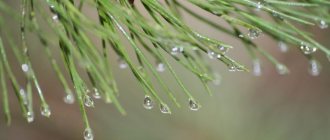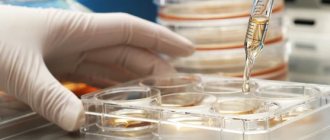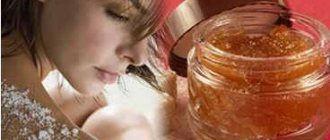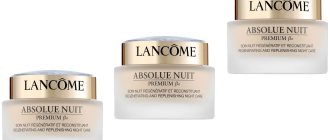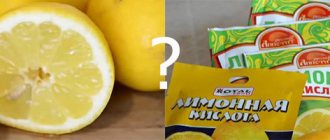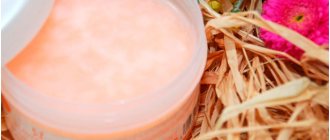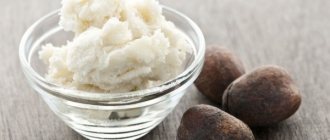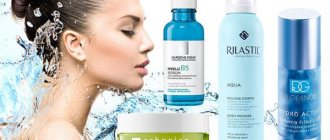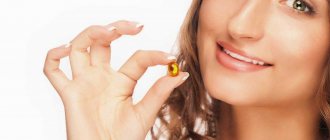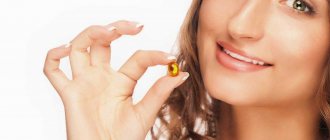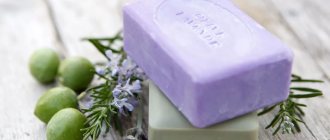- What is arbutin
- Composition of arbutin and forms used in cosmetics
- Beneficial properties of arbutin
- Contraindications
- Top Korean products with arbutin
We continue to introduce readers to the most common cosmetic components of Korean care. Today we will talk about a product that can eliminate hyperpigmentation, excessive melanin production, and not only lighten, but also significantly rejuvenate the skin. Yes, we are talking about arbutin - one of the most active components of cosmetics produced in Korea. Let's figure out the secret of its effectiveness and why arbutin is so widely used in cosmetology.
What is arbutin?
Arbutin is a compound obtained from plant leaves. For example, lingonberries, bearberries, blueberries. It takes a lot of effort to obtain arbutin. The first step is boiling the leaves in water. The second is the addition of lead to the decoction, due to which the tannins released from the plants settle to the bottom. It is in this sediment that arbutin is contained.
Important
As is known, lead in cosmetics is not safe (it tends to accumulate in body tissues and can negatively affect the female reproductive system, immunity, interfere with the absorption of vitamins, lead to the development of caries and brittle bones).
In the third stage, hydrogen sulfide is used to separate arbutin crystals from lead and other unnecessary substances. At the last, fourth stage of arbutin production, its final purification is carried out using activated carbon and water. As a result, employees of cosmetic companies have crystals with long and thin spikes that dissolve well in warm liquids.
Arbutin production is established in different countries of the world. Most of it is produced in China. But there is also European and Russian arbutin.
History of appearance
In the past, the main skin lightening ingredient recommended by many dermatologists was hydroquinone. Controversy over its safety (it should not be used on darker areas; causes ochronosis; the FDA has declared it carcinogenic; it is currently banned in Europe, Australia and Japan) has sent specialists searching for alternative ingredients. We've got arbutin, the new brightening wunderkind in the dermatological world.
Like licorice root, mulberry, soybean extracts, kojic acid, azelaic acid, vitamin C and niacinamide, arbutin is an herbal ingredient for fading darkened areas. It is possible to obtain it synthetically or from bearberry and other plants. Shows antioxidant activity.
Usually combined with other skin brighteners such as kojic acid, vitamin C, niacinamide. They all work on a common principle leading to lightening. They have a greater effect when combined with each other.
How is arbutin beneficial for the face?
Once on the skin, arbutin partially blocks the production of the melanin pigment, due to which the skin color practically does not change under the influence of sunlight. The tan obtained by using products with arbutin is not too intense and looks natural. The likelihood of getting sunburn is significantly reduced. These properties have helped arbutin find its way into some sunscreen formulations.
Arbutin is most widely used in the fight against age spots. It is added to whitening creams. Products with arbutin smooth out existing pigmentation and slow down the formation of new pigment spots.
Arbutin is effective against several types of age spots:
- age;
- acquired due to prolonged exposure to the sun;
- congenital (freckles);
- inflammatory (traces from acne, small wounds, etc.).
Lightening of spots does not occur immediately. A significant effect can be noticed 28-45 days after starting to use the cosmetic product. It is this period that the skin needs to completely renew the cells of the upper layer - the epidermis. The lack of quick results should be regarded as a positive attribute. Arbutin in cosmetics acts delicately and does not make the skin overly sensitive. This sets it apart from hydroquinone and various acids often used as active ingredients in whitening creams and serums.
Another pleasant feature of arbutin is its mild anti-inflammatory effect. It does not dry out the skin, but acts as a natural antiseptic and reduces the likelihood of rashes.
Skin Benefits
Because arbutin breaks down into hydroquinone, it improves the appearance of dark spots. It can be considered as an alternative to hydroquinone.
In addition to its innate inhibitory effects, arbutin acts as a reservoir that slowly releases hydroquinone. Once absorbed into the dermis, enzymes in the body cleave the sugar group from arbutin. This works as a built-in safety valve, preventing your skin from being exposed to too much hydroquinone at once.
Researchers have been studying arbutin's ability to inhibit tyrosinase in skin cells since the 1990s. There is promising scientific evidence to suggest that the ingredient is effective as a lightening agent. It is gentler than other skin whitening ingredients.
Other special properties include:
- Sun protection: exhibits the ability to reduce the degree of darkening of the skin after sun exposure by blocking the production of tyrosinase.
- Gentle on the skin: other lightening agents can dry out and irritate the epidermis, but this substance is less irritating.
- Improves uneven complexion: Inhibits tyrosinase, an enzyme that helps in the production of melanin. Prevents the appearance of dark spots and helps smooth them out.
- Safe for use with other skin care products: There are no known negative interactions between arbutin and other ingredients.
- Great for eliminating red-purple acne scars that remain long after the pimple has gone away.
- Fights freckles, hyperpigmentation, lentigo, melasma and chloasma.
What are the contraindications for arbutin?
Some researchers believe that arbutin may contribute to cancer. However, other tests demonstrate that up to 75% of arbutin leaves the body during urination, and the remainder is insufficient to be carcinogenic.
It is believed that the substance in small doses heals the genitourinary system and protects it from infections.
To eliminate the possibility of dangerous consequences from the use of products containing arbutin, responsible cosmetic companies usually limit its concentration to 4% of the total volume of the product. In such quantities, arbutin is considered absolutely safe.
What are they made from?
Arbutin occurs naturally in several different plants. Bearberry and mulberry have the highest concentrations. Good content in blueberry, cranberry, wheat and pear varieties.
Bearberry has been used for centuries in Europe and North America in traditional medicine. Before the discovery of modern antibiotics, it was considered one of the few known natural antimicrobial drugs. The antibacterial activity is due in part to the presence of arbutin. Traditionally used to treat urinary tract infections. Synthetic forms can be created through chemical synthesis or an enzyme-catalyzed process.
Which products with arbutin to choose - top 5 best
Today on the cosmetic market there is a sufficient choice of care with arbutin. To help make shopping easier, we've rounded up the top 5 effective anti-pigmentation products containing this compound.
Whitening Cream from Holy Land
The cream from the Israeli brand has earned recognition from both consumers and cosmetologists. It is often included in home care for pigmentation prescribed to women by professionals. The product contains a lot of natural extracts (grapes, Baikal skullcap, mulberry, etc.) and activates cellular metabolism. As a result, unpleasant spots disappear faster, and the face begins to look fresher and more youthful.
Cost - from 2500 to 3000 rubles
Idealia Pro Serum from Vichy
Gives an almost instantaneous skin lightening effect due to the combination of arbutin with other whitening components (titanium dioxide, capryloyl salicylic and citric acids, etc.). The vitamin C content makes the skin glowing and energized. But it does not cope with all types of pigmentation and can cause dry skin, so be sure to use it in conjunction with a moisturizer!
Cost - about 1800 rubles
Line with Arbutin Dermo Active Complex from BeautyMed
The series produces a serum, a cream mask and a dermoactive cream with a whitening effect. These are strong products, the concentration of arbutin in them reaches 5%, which allows you to fight even severe pigmentation. There is also hyaluronic acid, which perfectly moisturizes the skin.
Cost - about 300 rubles
Melascreen Anti-taches brunes SPF15 light cream from Ducray
It combines the properties of a day cream and a sunscreen, but the SPF is not so high, so it is better to use it in the winter, and for the summer, choose a cream with an SPF factor of 25 or more. It is best suited for those with oily or combination skin. Makes an excellent base for makeup. There are quite a lot of positive reviews about this cream; the product actually whitens the face well.
Cost - about 1500 rubles
Olive oil Brightening cream from Aphrodite
The product is created for dry and dull skin, enriched with olive and jojoba oils, contains hyaluronic acid, aloe and rosemary extracts. Normal skin will also like the cream, it does not create an oily sheen, and does not leave white spots like other sunscreens.
Cost - about 700 rubles
How quickly results are visible when used
Depending on the depth of pigmentation, visible lightening effects can be seen after just 4 weeks. If you need quick results, then purchase drugs based on alpha-arbutin instead of other alternatives.
An important nuance - the result of lightening with arbutin is not permanent.
If you stop using it, the skin may return to its original state.
Because of this, it is advisable to combine different lightening ingredients for sustainable success.
Where and how much to buy cosmetics with arbutin?
Many people use arbutin in homemade creams, so the question arises where to buy arbutin. But in its pure form it is sold only in online stores; for example, 5 g of extract will cost you 600 rubles.
Ready-made cosmetics with arbutin differ in their pricing policies. Thus, BeautyMed brand cosmetics will cost at least 3 thousand rubles per jar; Holyland cream is easier to buy, as it is sold in many large retail chains, as well as in cosmetology clinics and offices, but its cost is also high - from 3 thousand rubles .
So the use of arbutin for age spots is not a myth, but the pure truth. The component really prevents new spots from forming and reduces the severity of old ones. Compared to other active ingredients in whitening creams, arbutin is not aggressive. To be completely confident in the safety of the cream against pigmentation, you should choose products where the concentration of arbutin does not exceed 4%. These requirements are met by products of several brands costing from a couple of hundred rubles to three thousand or more. Also, do not forget to fully study the composition; do not choose creams with a high content of parabens, EDTA, MIT, TEA.
[yasr_overall_rating size=”medium”]
Types in cosmetics
In cosmetics, this ingredient is present in different forms:
- Alpha arbutin is a purified and more effective form compared to beta arbutin. Perfectly whitens any skin, but expensive to produce. Only high-quality preparations contain this component. Has a stronger inhibitory effect.
- Beta-arbutin (unstable version) - often called without the "beta" prefix. Available in inexpensive means. If the alpha component is not written in the composition, then you can safely assume that the composition contains a beta version. Most care products contain plant extracts that contain arbutin, and not pure alpha. Popular in cosmetic preparations intended to lighten the epidermis, such as lotions, creams, night masks, serums, cleansers, for the treatment of dark areas, lightening.
- Deoxyarbutin is a synthetic form. Powerful antioxidant. It is 150 times more effective than kojic acid and 10 times more effective than hydroquinone. Harmless, stable, less cytotoxic, practically does not irritate the dermis and is well absorbed. The concentration recommended by experts in cosmetics is 0.1 – 3%. Despite all the advantages, it is practically not for sale.
Side effects
Understand that there were some people who were nervous about arbutin due to the similar brightening properties it has to hydroquinone.
According to dermatologists, arbutin produced from natural plants (not synthetic) is safe.
The latest opinion from the European Commission's Scientific Committee on Consumer Safety (SCCS) regarding alpha-arbutin states that it does not pose a risk when used. Harmless to consumers in cosmetic products in concentrations up to 2% in face creams and up to 0.5% in body lotions.
The skin does not have an alkaline environment, so arbutin does not hydrolyze to hydroquinone.
Derived from natural raw materials, it is safe for any type of elidermis.
Naturally, individual intolerance must be taken into account. Consultation with a dermatologist is recommended.
